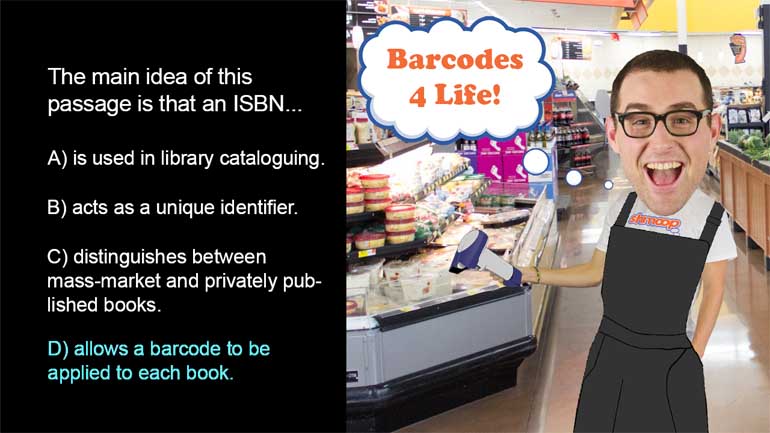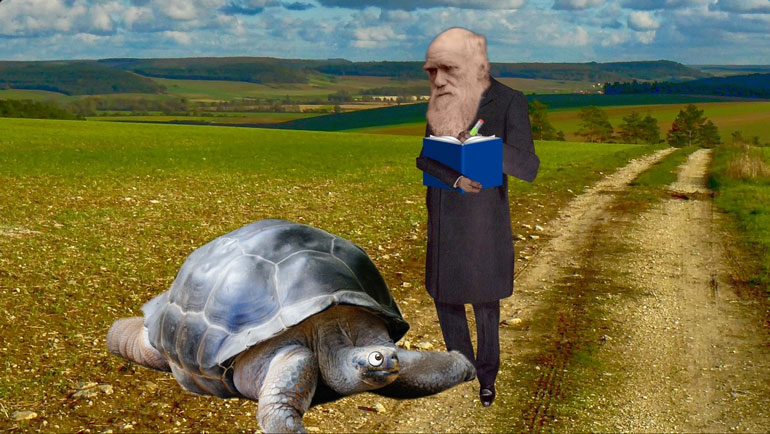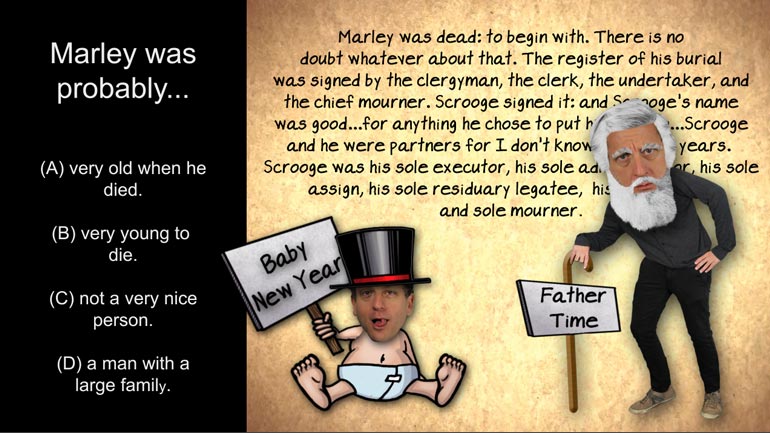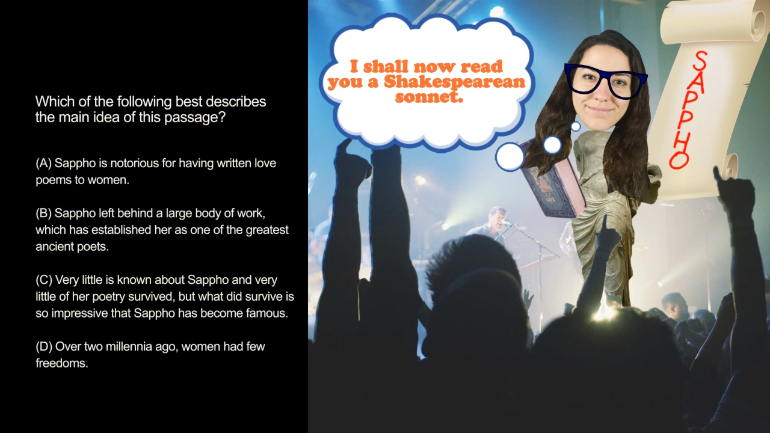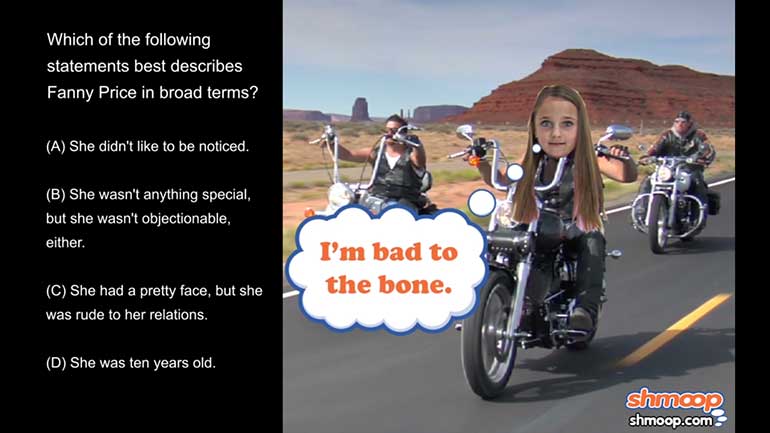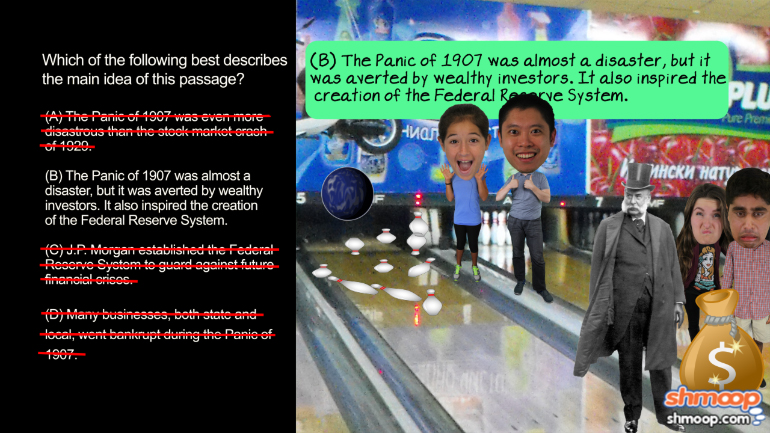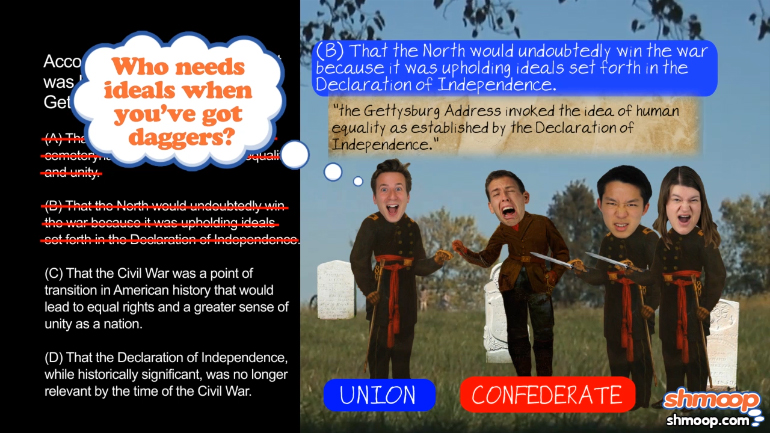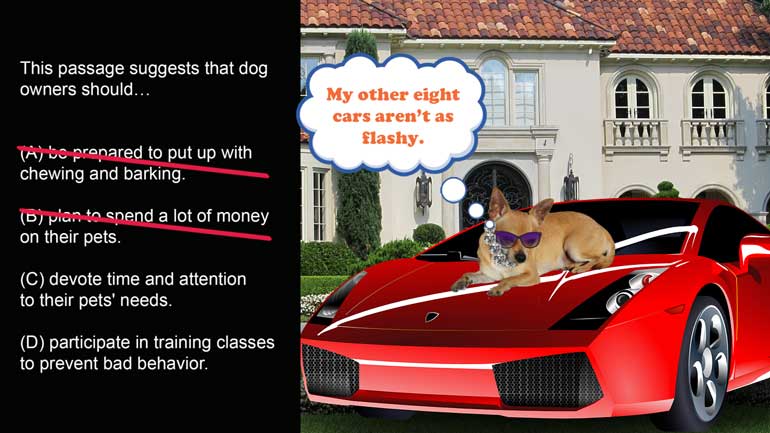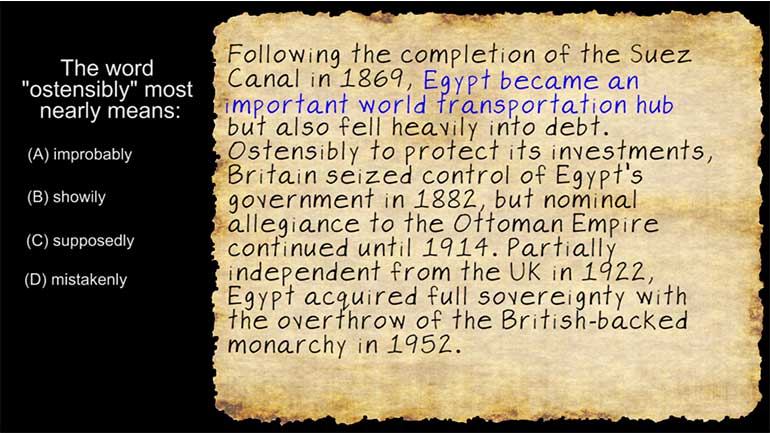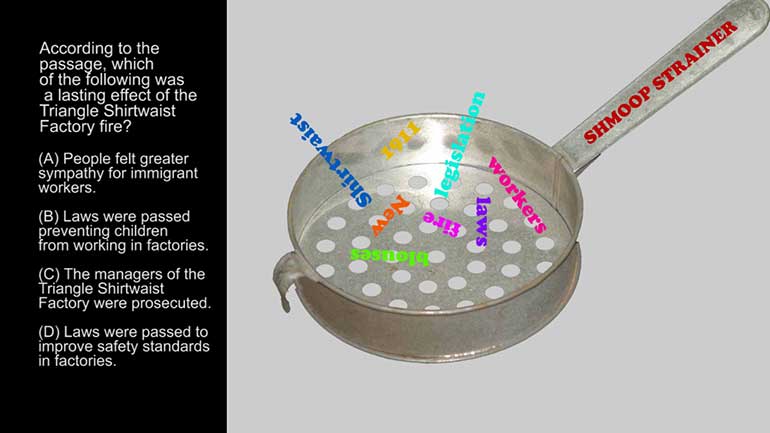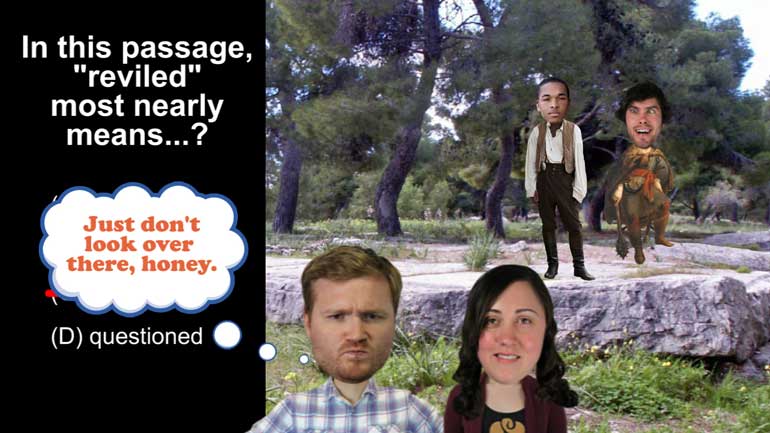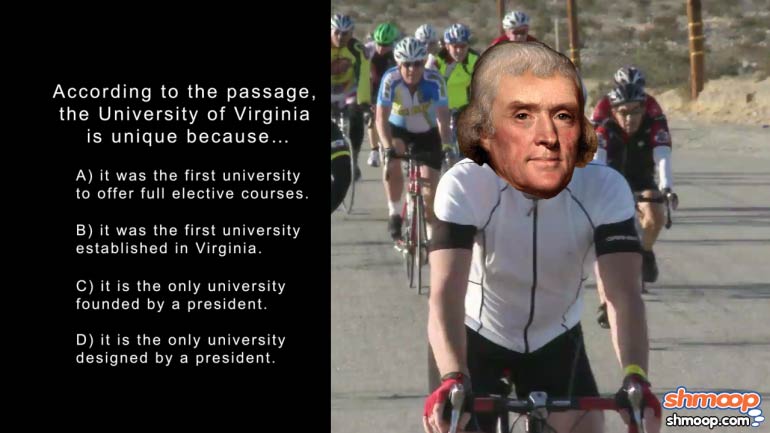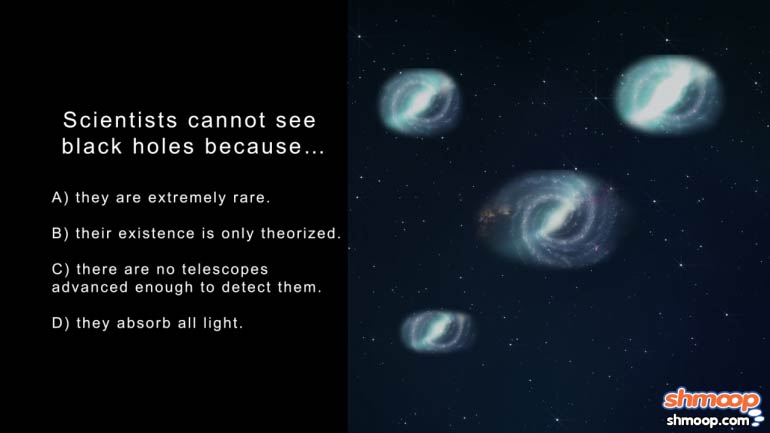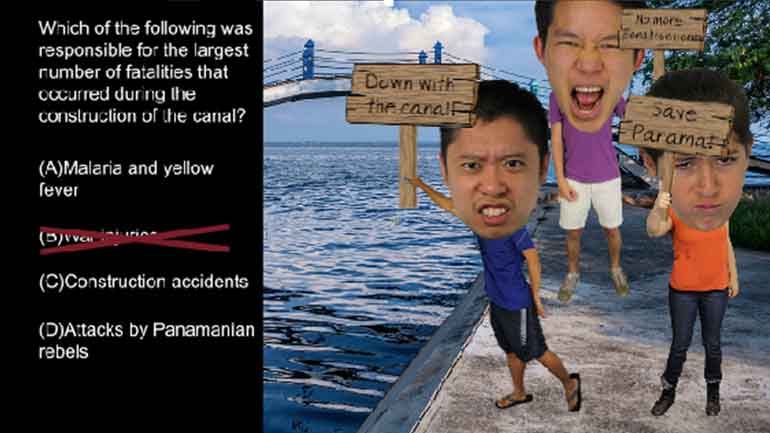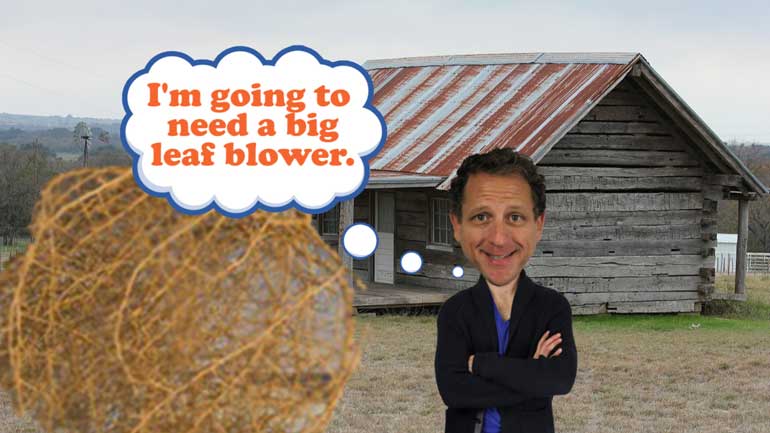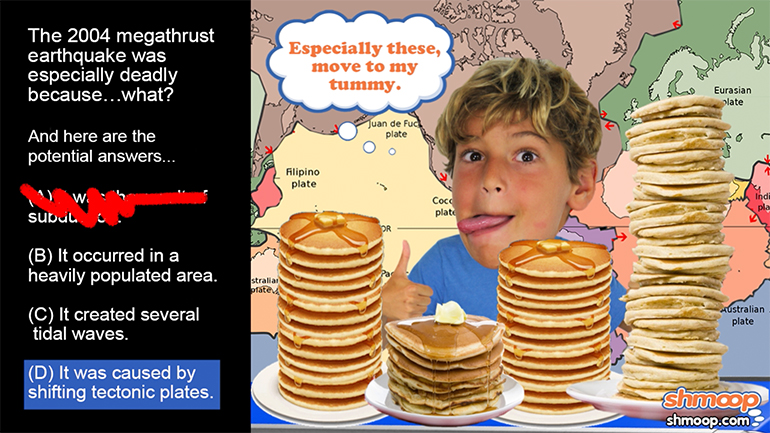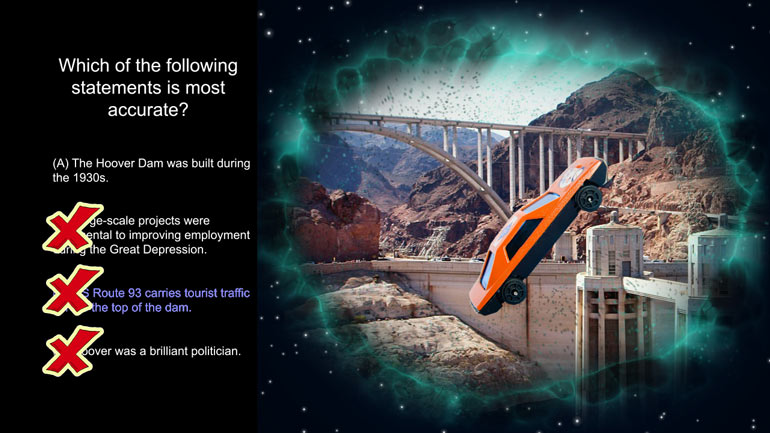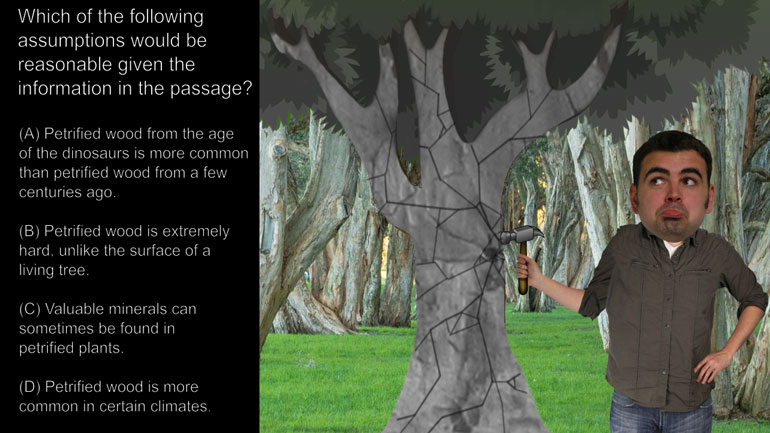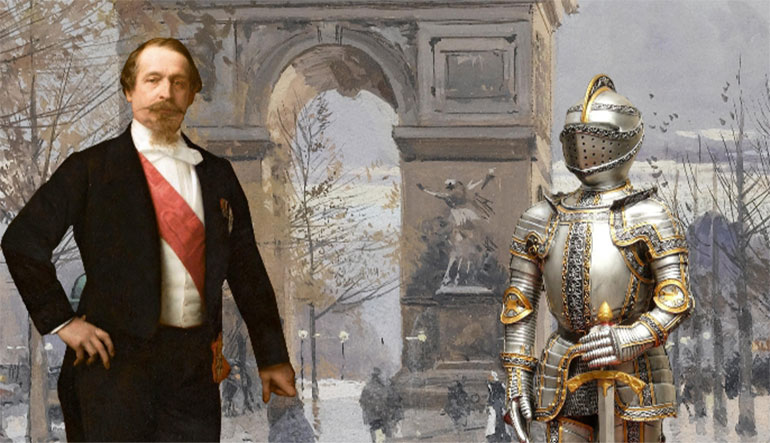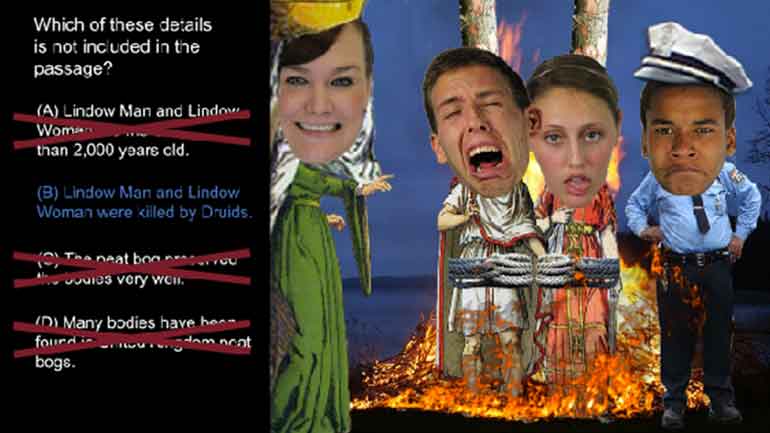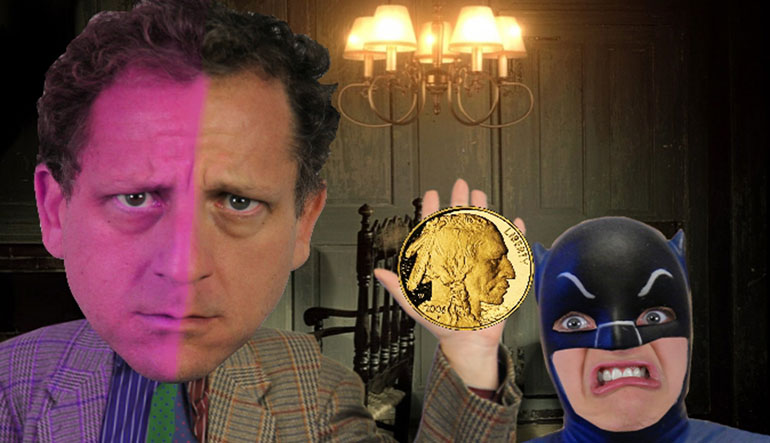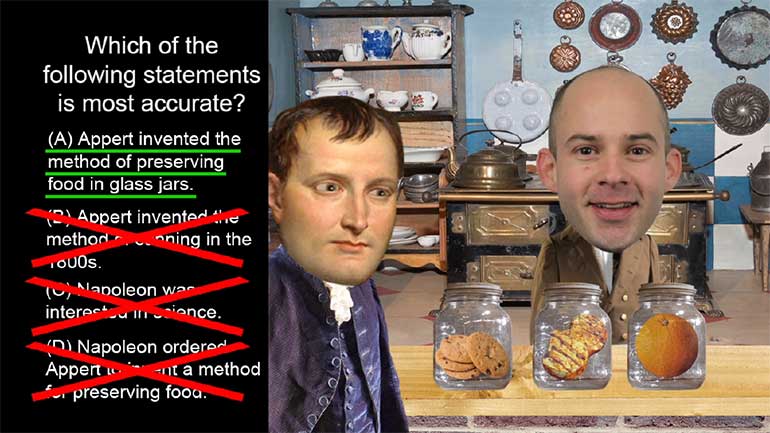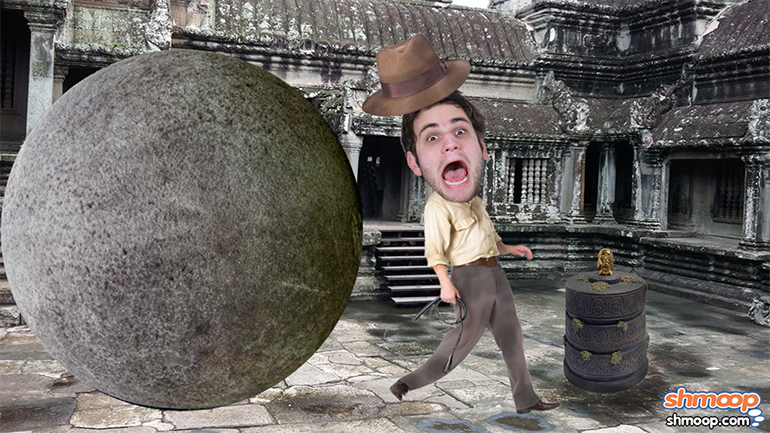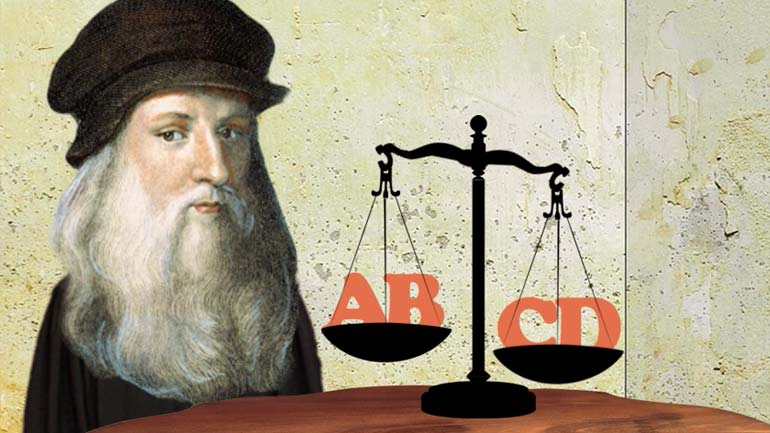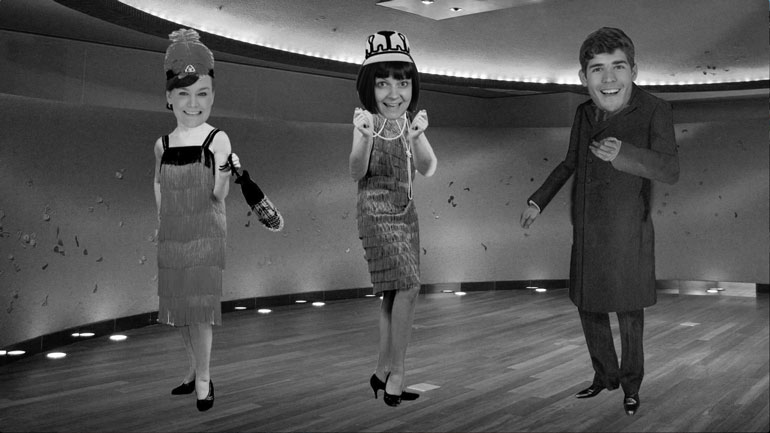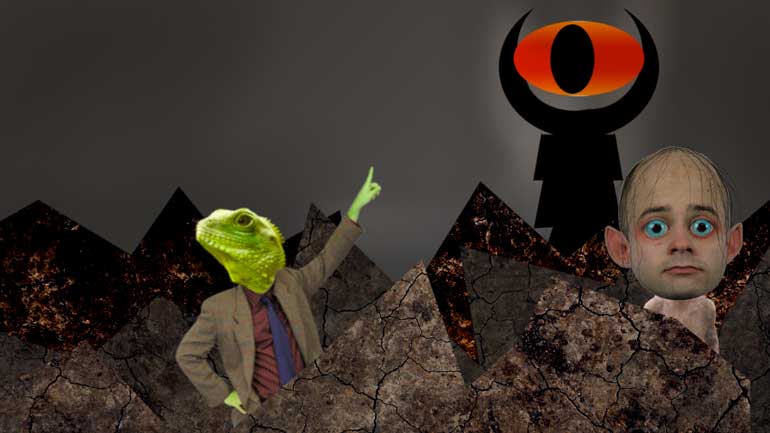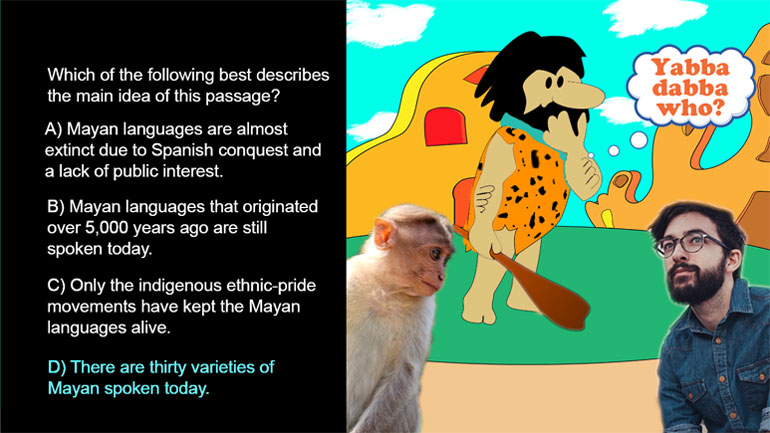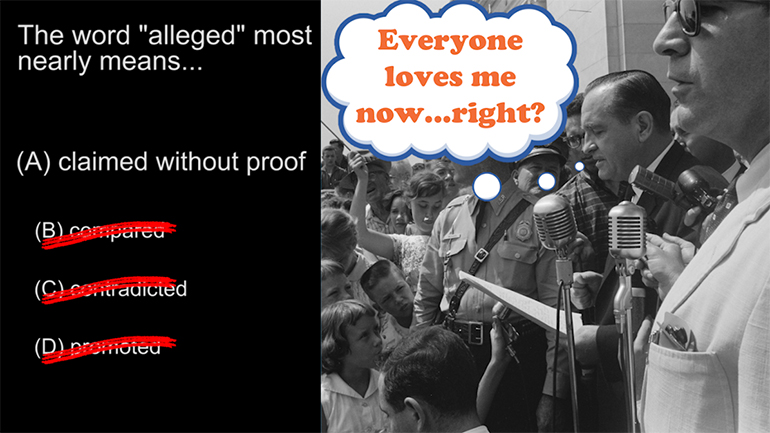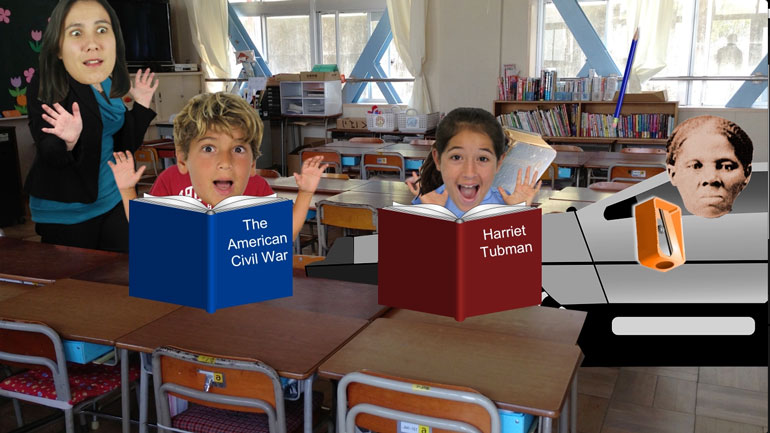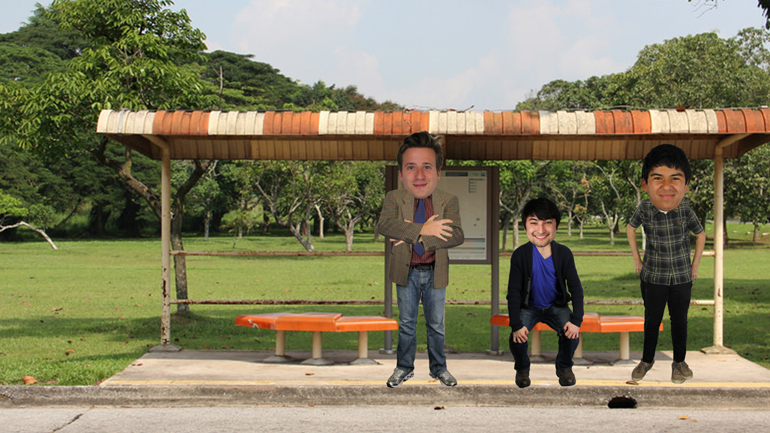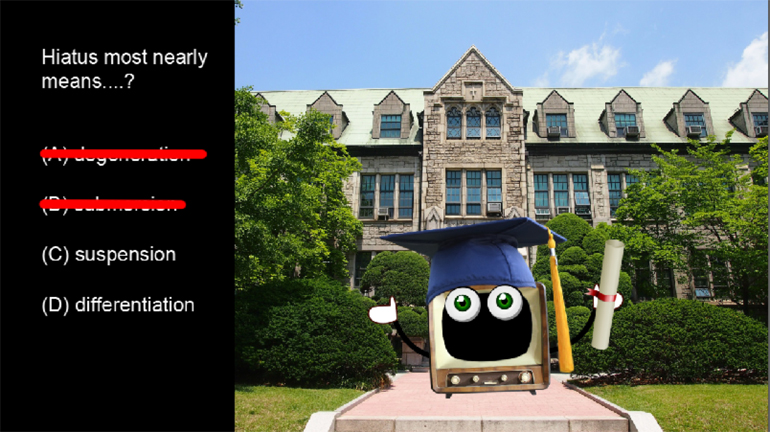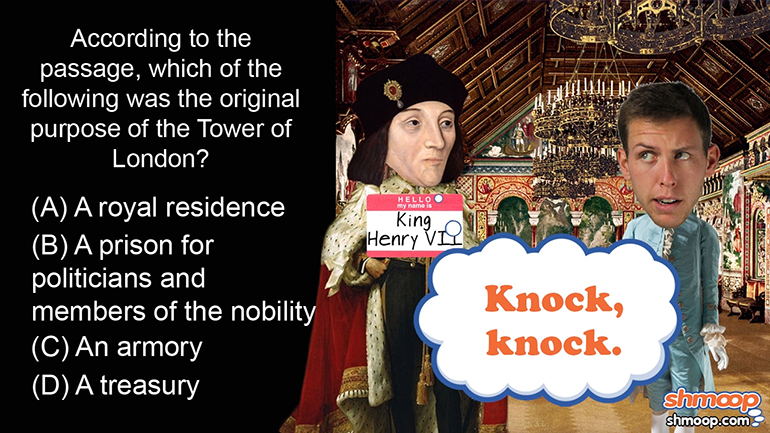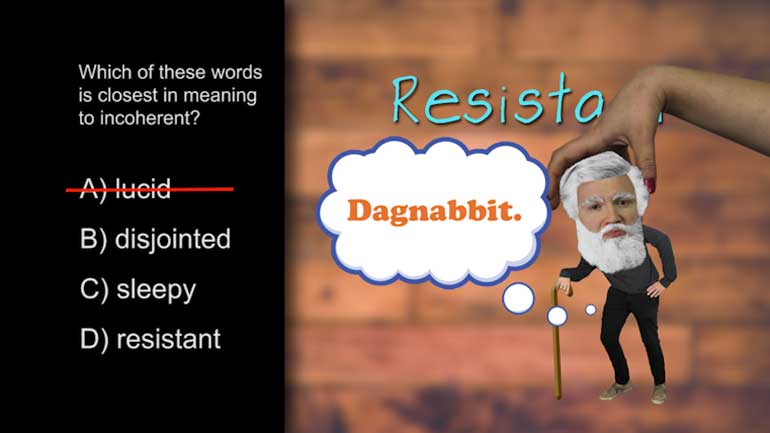ShmoopTube
Where Monty Python meets your 10th grade teacher.
Search Thousands of Shmoop Videos
ASVAB English Videos 66 videos
ASVAB Paragraph Comprehension 2.2 Summary. The main idea of this passage is that an ISBN...what?
ASVAB Paragraph Comprehension 1.3 Summary. What is the main purpose of this passage?
ASVAB Paragraph Comprehension 3.4 Inference. This type of change in the moth population would be an example of...what?
ASVAB Paragraph Comprehension 3.2 Detail 175 Views
Share It!
Description:
ASVAB Paragraph Comprehension 3.2 Detail. According to the passage, which of the following statements about Tristan and Isolde is accurate?
More Video DetailsTranscript
- 00:00
[ musical flourish ]
- 00:03
And here's your Shmoop du jour, brought to you by over-sharing.
- 00:07
The next time someone writes a long-winded
- 00:09
post on social media, just be glad that
- 00:11
they didn't write an opera instead.
Full Transcript
- 00:13
All right, well, check out the following passage.
- 00:15
[ in a German accent ] Tristan and Isolde
- 00:18
is an opera composed in the 1850s
- 00:20
by Richard Wagner, an influential German composer.
- 00:24
Said to be inspired by a personal romance as well as
- 00:26
the work of a German philosopher,
- 00:28
Tristan and Isolde
- 00:30
(like our German kind of pronunciation there? [ chuckles ] No extra charge.)
- 00:33
was first performed in 1865.
- 00:35
The opera is often cited as a landmark in Western music
- 00:39
because of its enormous complexity and unique characteristics.
- 00:43
All right, according to the passage, which of the following statements about
- 00:45
Tristan and Isolde is accurate?
- 00:49
[ meow ]
- 00:50
[ mumbles ]
- 00:54
All right, right off the bat, option A can go take a seat
- 00:56
in the balcony, as the first line in the passage states
- 00:58
that the opera was written by Wagner, not Beethoven.
- 01:01
Come on. Do you really think that poorly of us?
- 01:03
All right, option B can be eliminated, as well.
- 01:06
Although the passage says it was composed
- 01:08
in the 1850s, it was not performed
- 01:11
until 1865.
- 01:13
Trust us, 15 years is a big difference.
- 01:15
Just ask any teenager.
- 01:17
Option D looks like a solid choice,
- 01:19
but we can't be fooled by the mention of a German philosopher.
- 01:22
Nowhere in the passage does it state
- 01:24
that the opera is too complex for audiences
- 01:27
to understand.
- 01:28
So this means that the correct answer is C -
- 01:30
A personal romance probably inspired the composer to write
- 01:32
Tristan and Isolde.
- 01:34
We probably wouldn't have followed Wagner on social media, though.
- 01:37
His posts would have probably been a little too intense.
- 01:40
[ dun dun duuuun ]
Related Videos
ASVAB Paragraph Comprehension 1.2 Summary. Which of the following best describes the purpose of this passage?
ASVAB Paragraph Comprehension 1.2 Vocabulary-In-Context. In this passage, the word "illustrious" most nearly means...what?
ASVAB Paragraph Comprehension 1.3 Vocabulary-In-Context. The word "preposterous" most nearly means what?
ASVAB Paragraph Comprehension 2.3 Summary. Which of the following best describes the main idea of this passage?
ASVAB Word Knowledge: Word Roots, Prefixes, and Suffixes Drill 1, Problem 1. Which of these words is closest in meaning to incoherent?
